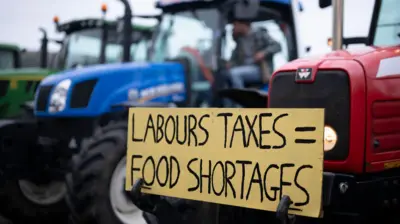We've updated our Privacy and Cookies Policy
We've made some important changes to our Privacy and Cookies Policy and we want you to know what this means for you and your data.
Oil exporters agree to extend output curbs
Image source, Reuters
The world's leading oil exporting nations have agreed to extend production curbs, aimed at boosting the oil price, by nine months.
The Organisation of Petroleum Exporting Countries (Opec) and non-members, led by Russia, agreed the output limits would continue until the end of 2018.
The limits were first agreed a year ago, and helped to push up the price of crude oil by about 30%.
The oil price fell slightly after the latest deal, which had been expected.
Brent Crude was down 0.3% at $62.35 a barrel.
The oil exporting countries have suffered in the face of a falling oil price brought about by global oversupply.
The new deal means 1.8 million barrels a day will continue to be cut from the market in an effort to reduce the oversupply and push up prices.
The 14-member Opec, whose biggest member is Saudi Arabia, has often limited output to boost prices.
However, last December they were joined by 10 non-members others, including the biggest exporter outside the group, Russia.
That agreement had already been extended once until the end of March.
A major factor behind global oversupply of oil is growing shale oil production in the US.
Russia has previously voiced concerns that continuing the output curbs could lead to more shale oil production.
Top Stories
More to explore
Most read
Content is not available








